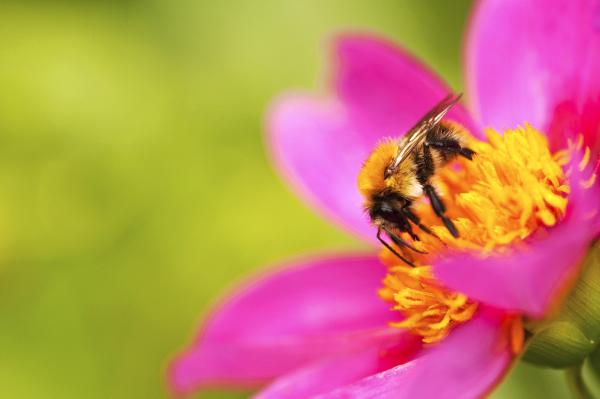Late ast year, the Native Irish Honey Bee Society (NIHBS) held its first ever bee conference in the Athlone Springs Hotel. The society is in its infancy, being formed in November 2012. But despite the fact that it is only getting its milk teeth, it was able to attract over 250 members from all over Ireland to the conference.
You may ask if it was the smell of honey that attracted them or was it because there is now a great interest in the dark European honeybee, Apis mellifera mellifera, which is the same native Irish honeybee. This bee has inhabited this island for longer than one cares to think about.
It looks as if the penny has dropped with beekeepers. Keeping bees which are hybrids and a mix of all kinds means they are unlikely to suit Irish weather conditions, they may not be so docile and they could also easily succumb to diseases.
The dark native Irish honeybee is a docile species that is ideally suited to our climate, being able to forage at low temperatures and being frugal in the use of winter stores.
As its main aims, the Native Irish Honey Bee Society strives towards the conservation, improvement and study of Apis mellifera mellifera.
The society is keen to further establish areas of conservation in Ireland, which may be achieved by the formation of new bee improvement groups. Education will play a part in the achievement of their aims, hence the reason so many beekeepers came to the conference to hear, first hand, some eminent speakers talk about the advantages of the dark European honeybee.
The conference
The conference was launched by Ella Mc Sweeney of Ear to the Ground. The speakers included Dr Robert Paxton who works in the Institute of Biology at Martin Luther University, Halle, Germany. He has an excellent bee science pedigree. Jonathan Getty is a long-standing beekeeper and specialises in queen rearing. He is a member of the Ulster Beekeepers Association. Dr Eoghan MacGiolla Coda comes from the well-known family of Michael McGiolla Coda of the Galtee Bee Breeders group. Eoghan has had bees in his blood since the day he was born. He is the editor of the native Irish honeybee magazine, The Four Seasons. In 2012 he won the Josef Stark Award for his contribution to the conservation of the dark European honeybee.
Dara Scott, a beekeeper and research scientist, comes from the west of Ireland and has contributed to bee health improvement through the development of a bee health product. Romee vander Zee is a Dutch beekeeper and research scientist. She is up to date and fully conversant with research on colony losses which are logged through the COLOSS monitoring project. She is chairperson of the Netherlands Centre of Bee Research.
Ireland has a unique opportunity to have the dark European bee in every corner of the country. The achievement of this would expand the gene pool, resulting in much stronger bees.
It is unfortunate that there are imports of bees into Ireland. These are unnecessary given that the local dark bee fulfils all the needs of the Irish beekeeper. The problems caused by such imports arise when these are crossed with the native dark bee.
These crosses may be difficult to handle and, in some cases, require a suit of armour to deal with them. The dark honeybee (native Irish honeybee) is easy to handle, especially when it is uncontaminated with other non-native bees.
credit
Great credit is due to PRO Aoife Ni Giolla Coda, chairperson Pat Deasy, editor (Four Seasons Magazine) Dr Eoghan Mac Giolla Coda, treasurer Sean O’Feannachta, secretary Collette O’Connell and their committee for bringing about this event.
At the conference, Michael Mac Giolla Coda was presented with a lifetime achievement award for his contribution to bee improvement and promoting the native Irish bee. The award was made by the Native Irish Honey Bee Society.
There are very few countries in Europe which are in the unique position of having an almost pure black bee. Norway, Scotland and the Netherlands have achieved this goal and there is no reason why Ireland cannot achieve the same.
This young society (NIHBS) should reach this goal if the same commitment as experienced at this conference is applied. It would appear the native Irish honeybee is now in safe hands. CL





SHARING OPTIONS